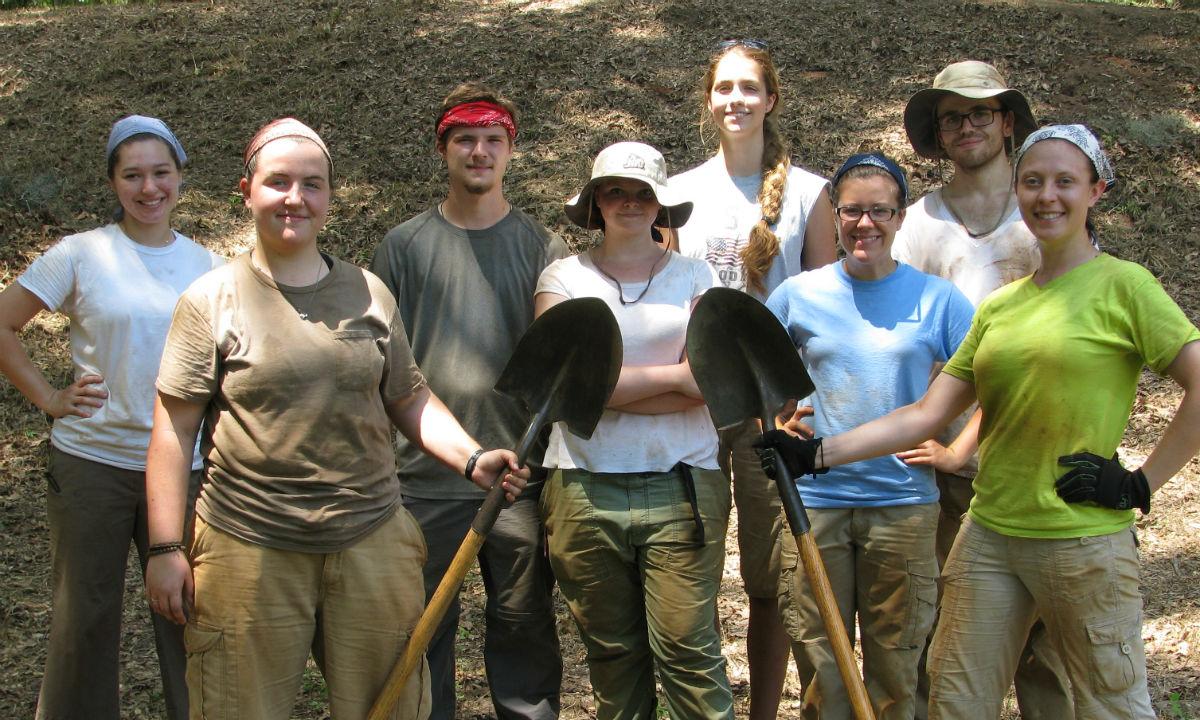
Internships
Internships provide anthropological opportunities for hands-on learning and research that are not usually found in the classroom. Internships are often, but not always, taken on by students during the summer months. Internships can be diverse in their application, including occasional online internships. While internships provide the student with experience, they are often uncompensated. Students interested in internships should discuss opportunities with their advisor, and there are also opportunities to apply for funding to help supplement travel/living costs via the College of Arts and Letters (Opportunity Scholarship).
While there are various lists of anthropology internships online (see American Anthropological Association: Field Schools & Internships), the “internship landscape” often changes based on numerous factors including funding, ongoing projects versus completed projects, and staffing. Students are encouraged to contact their advisors about potential paid research opportunities with professors. Students are encouraged to do their own internet searches for potential internships as well as discuss their options with anthropology faculty. Internship opportunities are also posted on the JMU Anthropology LinkedIn group.
Field Schools
Field schools provide further opportunities for anthropology students to learn field methods and gain hands-on experience in archaeology, linguistic, sociocultural, and biological anthropology. Like internships, field schools are typically offered during the summer and annual availability varies due to factors like project completion and funding. The American Anthropological Association offers a searchable database of field school opportunities through AnthroGuide, but students are also encouraged to conduct internet searches to identify potential field schools and discuss their findings with their advisor.
National and Regional Conferences
Each subfield in anthropology has its own major professional organization, which organizes an annual conference, hosted in a major US city, that draws researchers and students from all over the world. These national conferences, as well as smaller regional conferences, provide opportunities for students to present research or simply attend a professional setting where primary anthropological research is showcased and discussed. Regional conferences have the advantage of being more intimate, often more student-focused, and do not require lots of travel expenses to attend. Students interested in attending a national/regional conference should discuss this possibility with their advisor (usually student attendance is contingent on the student presenting at the conference).
Internships, Field Schools, Jobs, and Volunteer Opportunities
- Student Conservation Association
- Society for Historical Archaeology Student Page
- Archaeological Society of Virginia
- Archaeological Institute of American Fieldwork Opportunities
- Primate Info Net
- Society for Conservation Biology
- Environment Jobs
- Texas A&M Dept. of Wildlife and Fisheries Science Job Board
- Smithsonian Environmental Research Center
- Smithsonian Office of Fellowships and Internships
- The School for Field Studies
- USDA Forest Service
- National Council for Science and the Environment
- World Wildlife Fund
- The Nature Conservancy
- Conservation and Land Management
- Shovel bums (Archaeology Cultural Resource Management jobs)
Lambda Alpha, Epsilon of Virginia Chapter
The purpose of the society shall be to encourage and stimulate scholarship and research in Anthropology by recognizing and honoring superior achievement in the discipline among students, faculty and other persons engaged in the study of Anthropology.
Criteria for Acceptance:
Undergraduates must be currently enrolled and have completed not less than twelve (12) semester hours or the equivalent in academic Anthropology. Undergraduates must have an average grade in these courses of not less than “B” or 3.0 and a cumulative quality point average of not less than 2.5.
For more information contact Dr. Dennis Blanton, blantodb@jmu.edu


